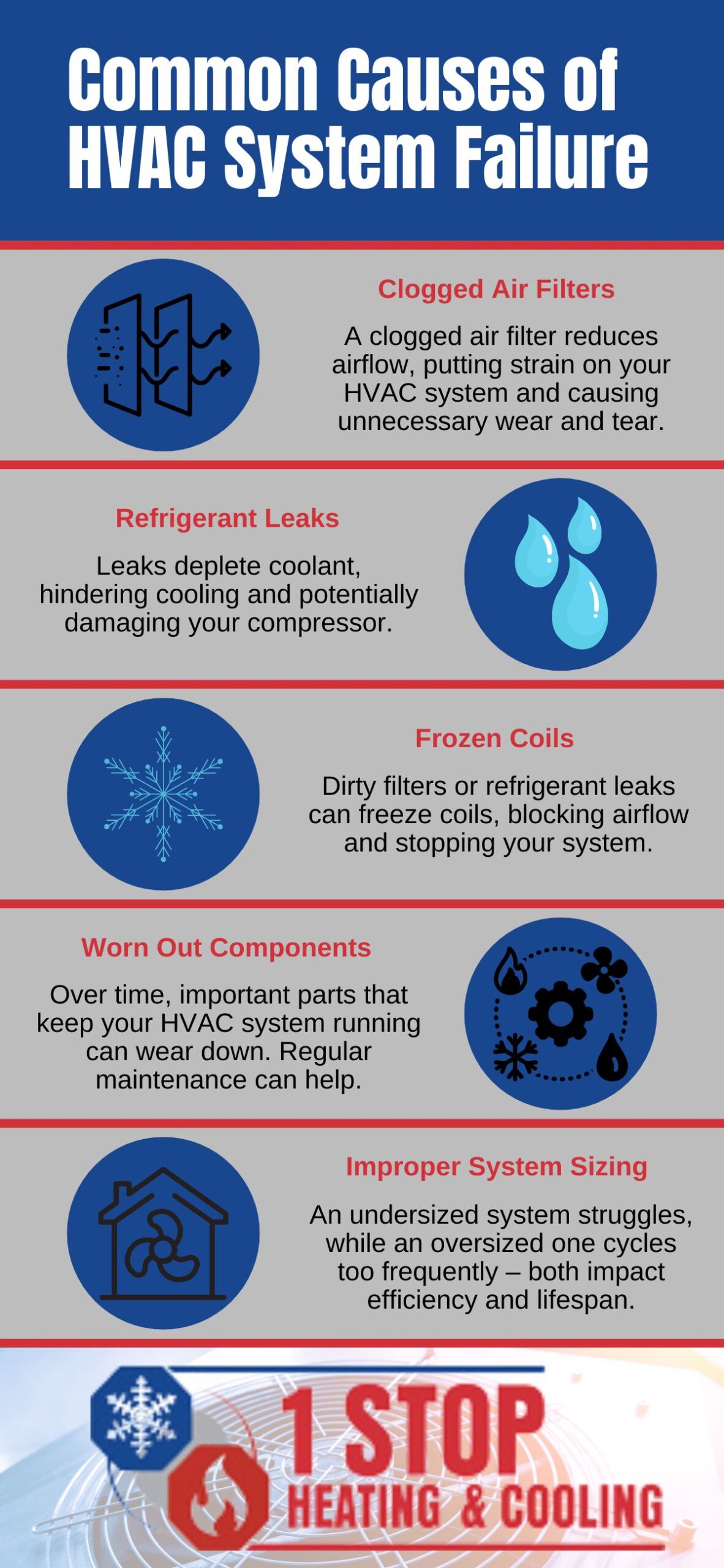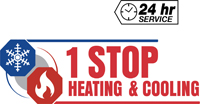Imagine waking up on a sweltering summer night, desperately cranking the thermostat down, but getting blasted with warm air instead. Or, picture yourself shivering through a winter morning as your furnace struggles to keep you from transforming into a block of ice.
Generally, the average life expectancy of an HVAC system that isn’t regularly serviced is only about 15 years, while regular maintenance adds an additional 10 years.
While both scenarios are very different, they both point to the same culprit: a failing HVAC system. HVAC stands for heating, ventilation, and air conditioning, and this complex network of components is responsible for the comfort of your home year-round.
But just like any machine or appliance you have, HVAC systems can wear down over time. The difference in how long an HVAC system lasts is based on how often the system was serviced. Generally, the average life expectancy of an HVAC system that isn’t regularly serviced is only about 15 years, while regular maintenance adds an additional 10 years.
When you’re dealing with a HVAC system that has recently become a little temperamental, the temperature outside quickly becomes a frustrating thing you have to battle in order to stay warm or cool. Luckily for you, 1 Stop Heating & Cooling is a trusted HVAC service company in the Kittanning, PA area, and we specialize in keeping your home at the desired temperature throughout all the season changes.
How Often Should HVAC Systems Be Serviced?
Having your HVAC system serviced isn’t any different than getting the oil changed on your car on a regular basis or going in to visit your doctor for a yearly checkup. When it comes to your HVAC system, these regular services are a preventive measure that keep things running smoothly, avoid costly surprises down the road, and ensure you’re breathing clean, comfortable air.
The recommended service frequency for HVAC systems depends on a few factors, but generally falls within the range of once a year to twice a year.
This involves one tune-up in the spring before the cooling season and another in the fall before the heating season. That said, if you use your HVAC system more frequently because you live in a climate with extreme temperatures (think Arizona in summer and Alaska in the winter) where you’re running the system for extended periods, you may benefit from more frequent service calls. Fortunately for us here in the Armstrong County area, this usually isn’t a big problem.
Another reason you might need more than the recommended amount of service calls is if you have an HVAC system that is over 10 years old. Think of it like a classic car – it might still run, but it will more than likely require more frequent tune-ups, part replacements, and some TLC to keep it operating smoothly.
What Are Some Common Causes of HVAC System Failure?
While regular maintenance can help extend the lifespan of your HVAC system and help keep it running in tip-top shape, unfortunately, wear and tear over time can’t be avoided. Here are some of the most common culprits that can lead to premature HVAC failure:
- Clogged Air Filters: A dirty air filter is like trying to breathe through a clogged straw. It restricts airflow – forcing your HVAC system to work harder – and significantly reduces efficiency. This extra strain on the system can lead to important components wearing out faster than they normally would.
- Refrigerant Leaks: Your air conditioner depends on refrigerant in order to work properly. A leak in the refrigerant line can lead to a drop in coolant levels, making it impossible for your system to absorb heat effectively and cool your home. Low refrigerant can also damage the compressor, a costly component to repair or replace.
- Frozen Coils: Dirty air filters and refrigerant leaks can both contribute to frozen evaporator coils. When airflow is restricted or coolant levels are low, moisture in the air can freeze on the coils, blocking airflow further.
- Worn Out Components: Different components in an HVAC system, such as the blower motor, compressor, or even electrical components can wear down over time. Even though it can’t be avoided all together, regular maintenance can help you get the most out of your system.
- Improper System Sizing: An HVAC system that’s too small for your home will constantly struggle to keep up with demand, leading to inefficiency and possibly even the whole unit breaking down. On the other hand, a system that is too big will cycle on and off more frequently, which can also shorten its lifespan.

Is Your HVAC System in Need of Repair? Call 1 Stop Heating & Cooling
If you’re experiencing inconsistent temperatures, weak airflow, strange noises, a steady rise in energy bills, increased humidity levels in your home, or unpleasant odors, contact the professionals at 1 Stop Heating & Cooling. Our experienced technicians can diagnose the problem, recommend the best course of action, and ensure the climate within your home remains healthier and more comfortable every month of the year. Breathe easier, schedule your appointment today, and let 1 Stop Heating & Cooling handle it.
Call us at 724-664-1976.

Recent Comments